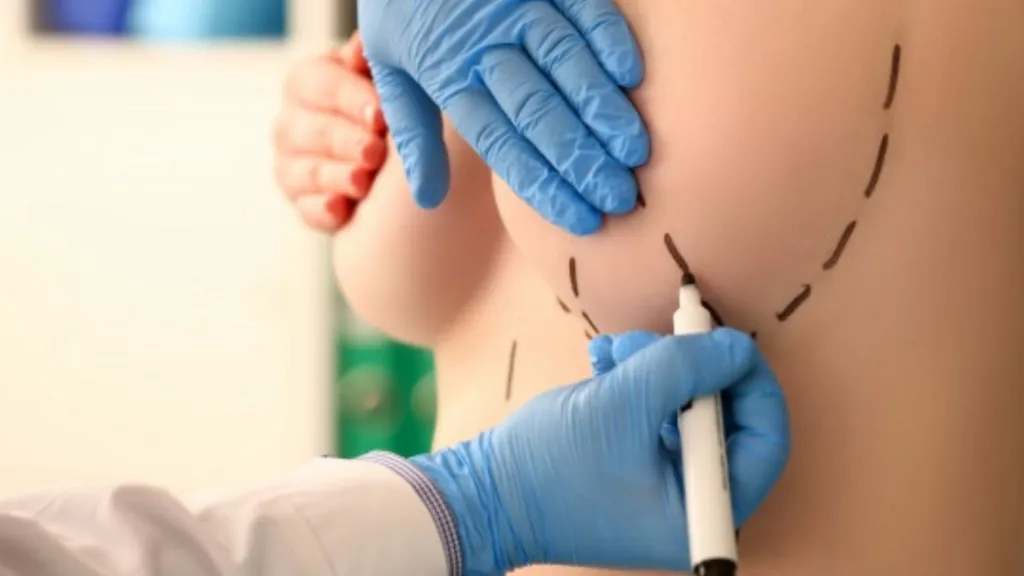Medical science has made it very easy to fix your cosmetic looks. In women breast augmentation is enormously popular. But in recent years they have noticed that breast implants has made them sick. In this blog, you will be learning about breast implant illness.
Nothing tastes as good as looking good feels.
Constant promotions of “perfect body and good looks” are also pushing men and women towards plastic surgeries. This is why women with small breasts are eager for larger and firmer breast sizes to improve their looks.
Silicone implants are inserted under the skin, to make the breast fuller and larger. Generally considered safe, but after implantation, Women are facing a variety of alarming symptoms. Fibromyalgia is the most common side effect of breast implants.
What is breast implant illness?
A wide range of symptoms that can develop after cosmetic augmentation of the breast is termed as “breast implant illness “. Breast implant illness can occur with any type of breast implant, with silicone gel-filled, saline-filled, smooth surfaces, textured surfaces, round or teardrop-shaped.
The increasing demand for breast implants has also increased breast implant disease to a great extent. Failure of a haircut is easy to fix but not a breast implant failure. Along with breast implant disease, they are introducing some autoimmune diseases such as:
- Rheumatoid Arthritis
- Scleroderma
- Sjorgen’s syndrome
Brief History of Breast Augmentation
The fascination with female breasts exists since the beginning of time. And constant researches are going on to find the best method for breast augmentation.
In 1889 Dr Robert Gersuny experimented with paraffin injections but the results were very unpleasant. After that in 1895, Dr Vincenz Czerny attempted the very first implant made up of the patient’s adipose tissue.

In the 20th century, many types of implants were made which ultimately resulted in the hardening of breast or granulomas and ended up with mastectomy. Then Dr Frank Gerow and Thomas Cronin invented silicone breast implants. And in 1962 Timmie Jean Lindsay become the first woman to receive silicone implants successfully.
Lately in 1988 complications of breast implant started to rise up and FDA banned new silicon implants for a decade.
Breast implants are not lifetime devices; the longer you have your implants, the more likely it will be for you to have them removed.” – FDA
WHO and FDA has also found that breast implant can cause you a rare cancer.
Complications of breast implant surgery
Undergoing any aesthetic surgery, it is imperative that you understand the risks during surgery, potential surgical complications and any potential for ongoing adverse effects due to cosmetic procedures.
Infections are common and usually can occur when a surgery site isn’t kept clean or if bacteria enters your breast during surgery. Other associated complications are:
- bruising
- bleeding
- blood clots
- skin necrosis
- capsular contracture
- implant deflation and rupture
- change in breast shape, volume, or sensation
- calcium deposits
- breast discomfort
- nipple discharge
- thinning of your breast tissue and skin
- nipple discharge
- dropping or bottoming out of the implant
- asymmetry
- need for further surgery
Why don’t you give a try what Mother Nature has gifted you with?
Symptoms of breast implant illness
Adverse symptoms that develop after breast implants, may be due to the immune system reacting to silicon polymers that are dispersed in the body by implants.
Breast implants illness symptoms can appear any time after implant surgery – some people develop symptoms immediately, while some develop them years later.
Latest studies shows women with silicone breast implants had a higher IgE serum level than women without silicone breast implants. IgE levels are high when the body’s immune system responds to a perceived threat, releasing additional immunoglobulin E. High concentrations occur in a variety of diseases including: primary immunodeficiency, infection, inflammatory diseases, and malignancy.
Severe symptoms:
- Constant swelling or pain around your breast implant, which can be experienced after several years of healed surgical incision.
- Fluid collection around the breast implants
- Capsular contracture, which can cause a lump under your skin or thick scar tissue around the implant, resulting in a damaged look.
Other breast implant complications
- fever
- redness
- swelling
- pain
- discharge
- change in breast shape or color
Few autoimmune diseases also shows up after silicon breast implants and their symptoms can be like:
- chronic fatigue
- cognitive impairment
- arthralgias, myalgias
- pyrexia
- dry eyes
- dry mouth
- anxiety
- depression
- hair loss
- gastrointestinal problems
Silicon also has potential for leakage from implants throughout the body, possibly leading to a chronic inflammatory condition.
How to diagnose Breast Implant Illness
Breast implant illness is a cluster of symptoms which don’t fit into any other classic disease diagnosis.
Presently there is no commonly used criteria to diagnose breast implant illness but blood work or scans can be performed according to symptoms.
How to treat breast implant illness
Breast implant illness isn’t well understood, and every plastic surgeons take different approaches to treat it.
Complications associated with Breast implant illness are usually treated on symptoms-by-symptom basis but in major complications. Researches have shown 75% relief of symptoms after removal of breast implants.
If you are diagnosed with BIA-ALCL, then removal of the implants at the first stage is enough to stop the spread .
However, making a diagnosis and creating a treatment plan – whether medical or surgical – should be a well thought out process between a patient and their physician.
How can you prevent breast implant illness?
The risk of your body’s reaction to a foreign body cannot be prevented, but the likelihood of infection can be reduced strictly and regularly following your surgeon’s instructions after you recover.
Eat healthy breast friendly food and keep yourself active so that your body can fight with inflammation .
In my opinion one should consider elevated health and wealth risk, and don’t choose breast augmentation surgeries.

